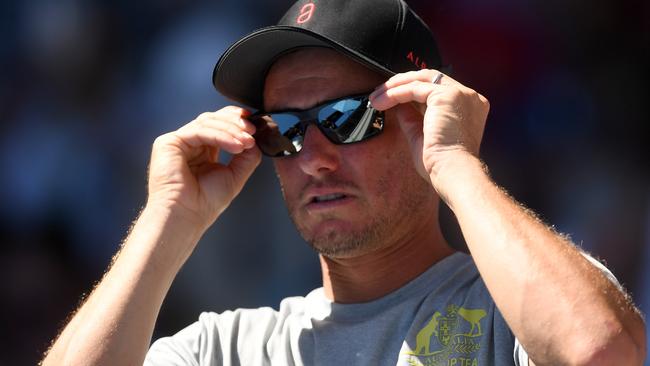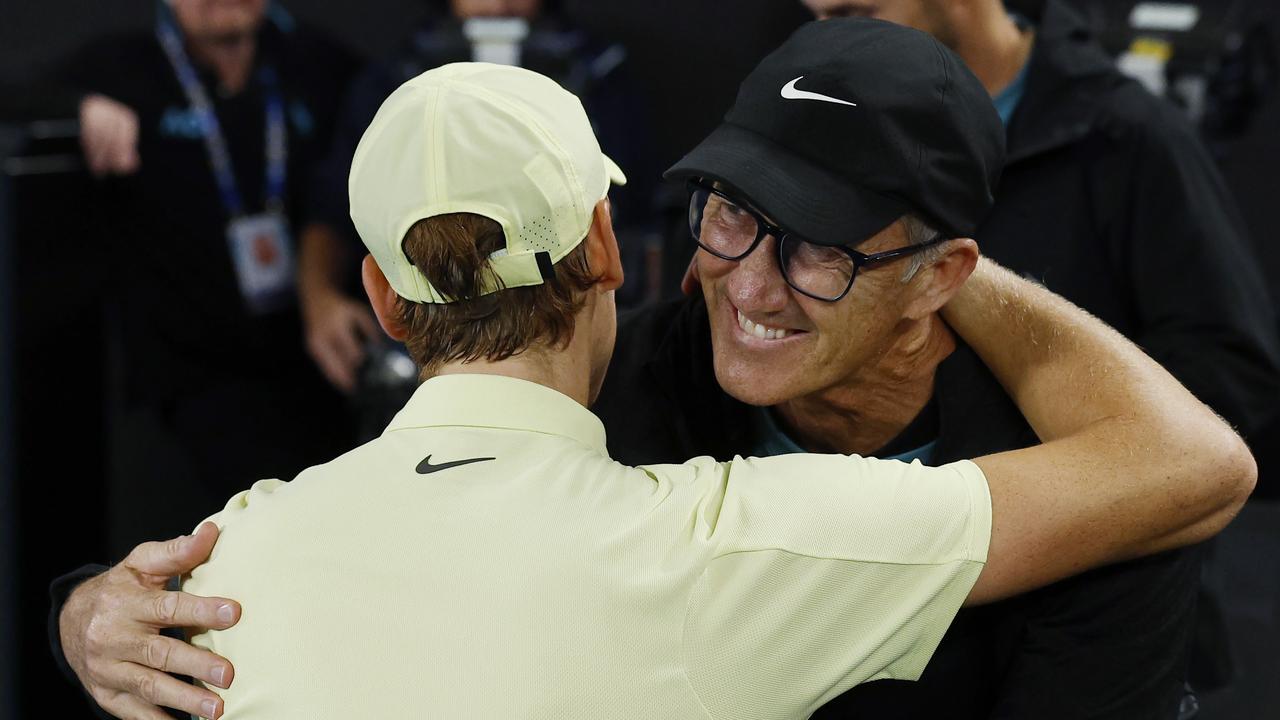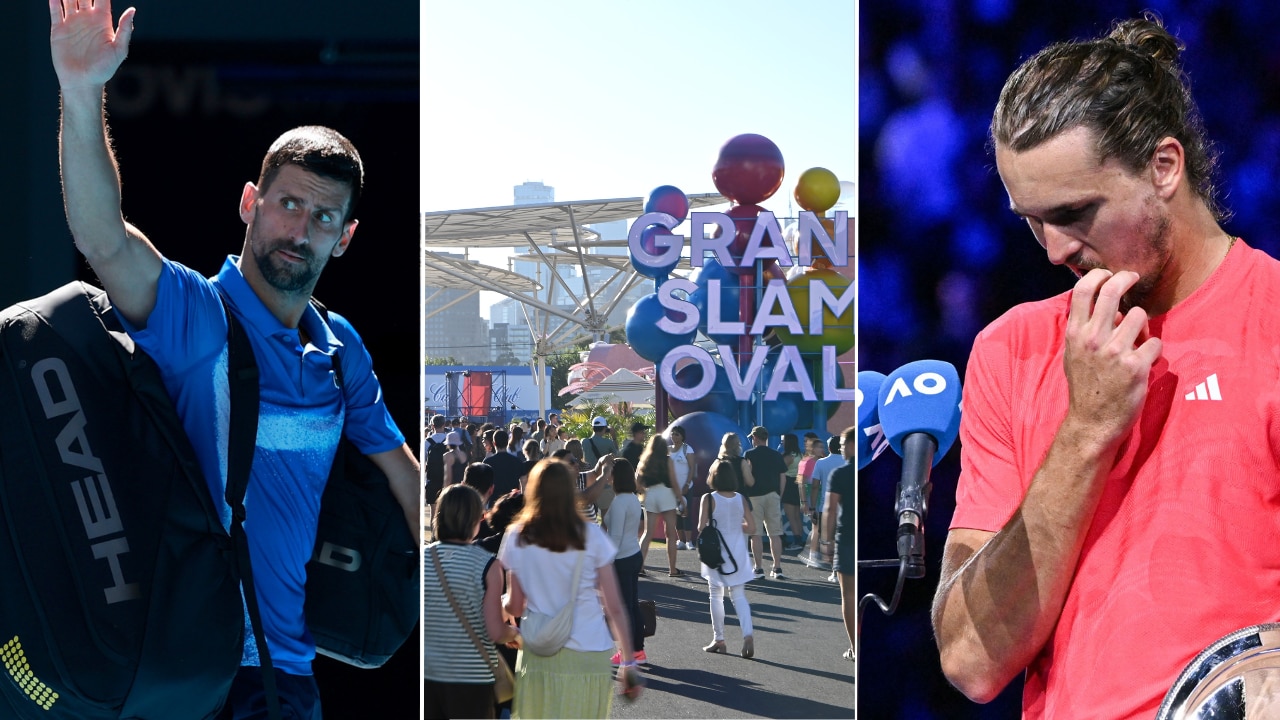Tennis Australia pays for policy of secrecy
The problem with a policy of secrecy is that a hint of discontent can explode in your face when it finally bubbles to the surface.

The problem with a policy of secrecy, as Tennis Australia and Davis Cup captain Lleyton Hewitt discovered late on Monday night, is that a hint of discontent can explode in your face when it finally bubbles to the surface.
For Australia’s male tennis players, there has scarcely been a dull tournament or tie over the past decade, though unfortunately the controversies have often outweighed the successes. And the latest blow-up from Bernard Tomic continues the trend, even if there is some truth in the incendiary remarks.
Hewitt is the latest former champion to attempt to instil discipline into Nick Kyrgios and Tomic. It was Tomic’s bombshell press conference that made public the magma of malcontent that has bubbled beneath the surface among players and some administrators in recent months,
Hewitt, a former world No 1, may well have more success than Pat Rafter, who attempted to convince the two Australian players of the benefits of dedication but ultimately stepped down as Davis Cup captain, deciding there was more to life than wasting it on those not prepared to do the work. Byron Bay is a pretty fine spot, after all.
Certainly Hewitt has more world-class talent at his disposal than Rafter did, with several younger Australians emerging led by Alex De Minaur and older men such as John Millman and Matt Ebden reaching the peaks of their career.
And their achievements over the past 12 months can only be lauded, with Hewitt clearly having an influence on De Minaur.
This luxury has given those in charge of discretionary decisions the tools with which to reward or penalise players. Such levers include financial assistance, representative duties and wildcard gifts into events in Australia in January and at the French and US Opens.
There is a problem, though, if those levies become politically weaponised or abused. Or if there is a perception that this has occurred. And in a sport as political as tennis has always been, the perception that something untoward may have occurred is an issue, even if those in authority are simply trying to do their best for the sport.
And this is where Tomic’s savage critique of the Tennis Australia’s leadership and Hewitt has highlighted key concerns.
The decision to overlook Thanasi Kokkinakis — who was forced to withdraw from a first-round yesterday when leading due to a pectoral tear — for wildcards into the Brisbane International and the Australian Open was always going to spark chatter.
Particularly so, as outlined by The Australian beforelast week’s qualifying, when those preferred clearly boasted inferior records and experience to Kokkinakis, who beat Roger Federer in a Masters series event in Miami last March.
When The Australian contacted Tennis Australia requesting information on the reasoning behind the decision and who was involved in the selection process, the response was that no answer was likely to be forthcoming.
In previous Australian Open wildcard press releases, the announcement was always accompanied by a comment from a leading official describing the reason why the decision was reached.
A day before the Kokkinakis snub, for example, Australia’s Fed Cup coach Nicole Pratt explained why Destanee Aiava, Ellen Perez and Zoe Hives, a winner on Monday, were favoured while conceding that it was a difficult decision given the depth among emerging players.
But the release about the selection of Marc Polmans, Alex Bolt and Alexei Popyrin spruiked their achievements but provided neither a quote nor a clue as to why they had been preferred and Kokkinakis snubbed.
To be fair to that trio, all three have performed admirably, as they did last year, and are unfortunate to have been among those Tomic threw under the bus in his critique of Hewitt and Tennis Australia, who can weather criticism.
Polmans, for example, led by two sets before falling to Denis Kudla of the US on Monday, Bolt defeated a former top 10 player in Jack Sock yesterday and Popyrin took out Mischa Zverev in straight sets.
But a statement or any explanation as to why Kokkinakis, who eventually qualified, was overlooked may well have averted the latest firestorm. Instead, the whispers have increased in volume and frequency.
The Davis Cup, which Hewitt understandably holds dear, lies at the heart of the reason the younger South Australian is on the outer with the Davis Cup captain.
After Kokkinakis was told last September that he would not play in a tie against Austria on clay, The Australian understands that he asked to be excused from attending as a hitting partner in preference to heading back to Australia from the US to prepare for hard court events to round out the year.
Kyrgios, meanwhile, is believed to have withdrawn after being told that extra personnel he wished to take to the tie would need to be financed out of his own pocket rather than by Tennis Australia.
The latter posted on social media during the Brisbane International that both he and Kokkinakis had been abandoned by Hewitt, though he subsequently deleted the post and later claimed he was joking.
Tomic has been on the outer after a stint under Hewitt’s management ended badly a couple of seasons ago when he was at the end of this tether and struggling mentally, though partnerships with other management groups have also ended acrimoniously.
Hewitt yesterday denied there were any rifts among the Australian men.
The other factor that has left Hewitt and Tennis Australia open to the accusation from Tomic that a conflict of interest is at play relates to his acceptance of wildcards into doubles events and also his participation as a player in Davis Cup ties where he is the captain.
This, to an extent, has exacerbated the inflammatory accusation surrounding those to have received wildcards — which guarantee a recipient at least $75,000 in Melbourne — are part of Hewitt’s favoured cabal or have links to the management company that also looks after the affairs of the Davis Cup captain.
While Hewitt officially retired from singles, it has been reiterated time and again that he never said anything about doubles.
And his effort to reach the semi-finals in doubles at the Sydney International last week, as well as a quarter-final of the Australian Open last year with Sam Groth, indicates he is playing well enough to receive them.
Plus, any tournament director with an eye to attendance and earnings will relish the opportunity to add a legend to their doubles field. It is why Hewitt has continued to receive doubles invitations around the world.
But when you are in a position where you can influence the futures of young men, or help them finance a career, or expose them to representative duties, it is understandable that there are questions surrounding the merits of Hewitt choosing to participate.
A review into the high performance areas of Tennis Australia has been undertaken and the conclusions will be interesting. But the claims made by Tomic on Monday night should not be ignored simply because Bernie is Bernie.



